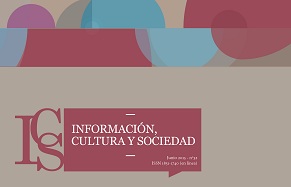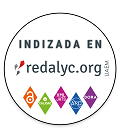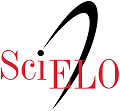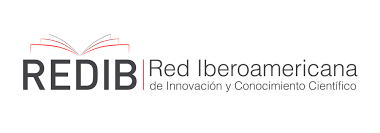The influence in Mexico of the international organizations in the matter of public information
Abstract
In the middle of the twentieth century, various democratic countries signed agreements and treaties; some were promoted as a model to be followed by the nations, mainly by underdeveloped countries, those nations reunited by the UN (United Nations Organization) began a joint work to promote democracy, social, cultural and economic development, in which information began to occupy an important place. The text explains in a general way the historical development of the international guidelines on information and how they influenced Mexico. In the first section background and general context of actions that favoured the treatment of information Public is shown; the second one points to the Mexican case and the main information policies; the third one focuses on how from the mid-20th century the professionalisation in the documentary organization began due to administrative needs and democratic strengthening through transparency and access to information where public information required the implementation of Information Policies. With this phenomenon it is possible to notice the origins of the historical modification of the paradigms in the information sciences, driven by the emergence of new phenomena related to the information and its cycle.Downloads
References
Braman, Sandra. 2011. Defining Information Policy. En Journal of Information Policy. Vol.1, no.1, 1-5 http://www.jstor.org/stable/pdf/10.5325/ jinfopoli.1.2011.0001.pdf?refreqid=excelsior%3Aca4a56349c68575901a5a e3f6d45a230 [Consulta: 20 diciembre 2017].
Cámara de Diputados. H. Congreso de la Unión. 2017. Leyes federales de México. http://www.diputados.gob.mx/LeyesBiblio/ref/cpeum_art.htm [Consulta: 28 agosto 2017].
Cámara de Diputados. H. Congreso de la Unión. 2017. Planes nacionales de desarrollo a partir de 1995. http://www.diputados.gob.mx/LeyesBiblio/compila/ pnd.htm [Consulta: 29 agosto 2017].
Comisión Económica Para América Latina y el Caribe. s.f. eLAC2018. Agenda digital para América Latina y el Caribe. http://www.cepal.org/es/proyectos/ elac2018 [Consulta: 28 agosto 2017].
Dorado Santana, Yanara y Mayra M. Mena Múgica. 2009. Evolución de la ciencia archivística. En ACIMED. Vol. 20, no. 1. http://www.interpares.org/display_ file.cfm?doc=ip1_dissemination_rep-s_gilliland-swetland_clir_pub89_2000. pdf [Consulta: 28 agosto 2017].
International Council on Archives. 2016. CITRA review: documents https:// www.ica.org/en/citra-review-documents [Consulta: 28 agosto 2017].
Naciones Unidas. 1948. La declaración universal de derechos humanos. http:// www.un.org/es/documents/udhr/ [Consulta: 28 agosto 2017].
Organización de las Naciones Unidas para la Educación, la Ciencia y la Cultura. 1995-2011. RAMP Studies. http://www.unesco.org/archives/new2010/en/ ramp_studies.html [Consulta: 28 agosto 2017].
Organización de las Naciones Unidas para la Educación, la Ciencia y la Cultura. 2017. Programa información para todos (PIPT). http://www.unesco.org/new/ es/communication-and-information/intergovernmental-programmes/information-for-all-programme-ifap/homepage/ [Consulta: 28 agosto 2017].
Organización de las Naciones Unidas para la Educación, la Ciencia y la Cultura. s.f. Memory of the world.
Organización de los Estados Americanos. 1969. Convención americana sobre derechos humanos suscrita en la Conferencia Especializada Interamericana sobre derechos humanos (B-32). http://www.oas.org/dil/esp/tratados_B-32_Convencion_Americana_sobre_Derechos_Humanos.htm[Consulta: 28 agosto 2017].
Weiner, Sharon A. 2013. Overview: The Rol of Information Policy in resolving global challenges. En Purdue Policy REsearch Institut (PPRI) Policy Briefs. Vol.1, no. 1, articulo 6. https://docs.lib.purdue.edu/cgi/viewcontent.cgi?article=100 5&context=gpripb [Consulta: 20 diciembre 2017].
Authors publishing in this journal acknowledge the conditions below:
- Authors retain the copyright of their work while they transfer the right of the first publishing to the journal, under the Creative Commons Attribution-ShareAlike 4.0 International (CC BY-SA 4.0) Licence, which allows third parties to reproduce them under the condition that express mention is given to the author and to its original publication in the journal.
- Authors may enter into other contractual and independent arrangements for the non-exclusive distribution of the version of the article published in this journal (for instance, it can be published in an institutional repository or in a book). In any case, an express mention should be given to its first publication in the journal.
- It is permitted and encouraged to publish online the articles (for example, on institutional or personal pages).























